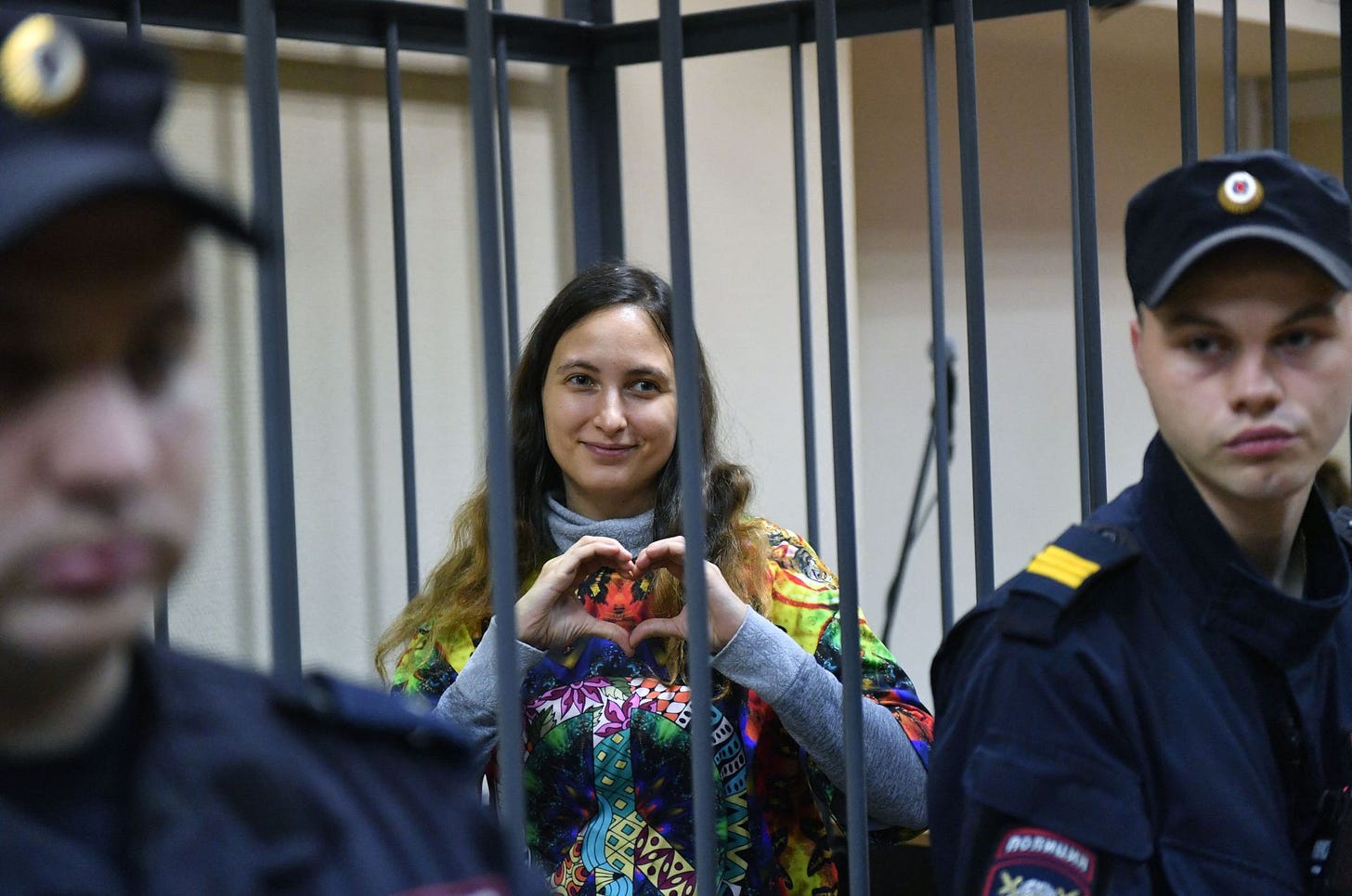Hello friends,
This past week, I have been thinking (and reading) a lot about both resistance and, critically, empathy.
In an interview with Joe Rogan on February 28, Elon Musk took the latter to task, calling it “the fundamental weakness of Western civilization.”
He accused the left (or anyone who opposes the current US administration) of “weaponizing” empathy and, in a metaphor befitting a tech bro, “exploiting a bug in Western civilization, which is the empathy response.”
On the subject of empathy, I prefer the more erudite (and compassionate) perspective of German-American philosopher and political theorist Hannah Arendt, who cautioned:
The death of human empathy is one of the earliest and most telling signs of a culture about to fall into barbarism.
As I watch Musk and the current US administration wreak havoc domestically and internationally, I am flooded with empathy . . . and fear.
This may give me — and others who think (and feel) like me — fuel for the resistance, but writer, pastor, and activist John Pavlovitz cautions that MAGA supporters won’t turn on Trump due to empathy; they’ll do so because of pain and personal hardship.
There are limits, it appears, to empathy.
So, what can we do?

Last week, I told you I was thinking about what it means to be a good neighbour, in times of peace and, significantly, when there is conflict.
I asked you how we can align our interests with the needs of those we may be conditioned to see as enemies or adversaries.
I shared examples of Israeli and Palestinian women walking toward a shared vision of peace.
Today, I turn to a different conflict: the war on Ukraine. How are Russian citizens living under Putin’s totalitarian regime reaching across artificial divides to show their support for Ukraine? What does their resistance look like?
Curious? Let’s go.
Sift.
Sift through Hannah Arendt’s work on empathy.
Hannah Arendt may have conceded one point to Musk: empathy can be associated with political weakness.
She recommended a clear-eyed, critical approach to political thought. Instead of “blindly” adopting the view of someone different from you, and thereby taking on a different perspective, she stresses the importance of forming “an opinion by considering a given issue from different perspectives.”
To learn more about this nuance, read:
“The political weakness of empathy” (Hannah Arendt Center for Politics and the Humanities, 2012)
“Encountering the stranger: Hannah Arendt and the shortcomings of empathy as a moral compass” (Mathiesen and Klitmoller, Theoretical Psychology, March 2019)
Shift.
Get inspired by the Feminist Anti-War Resistance (FAR) and Aleksandra Skochilenko.
Resistance looks different in Russia than it does in Canada, the United States, and other democratic nations. Russians who speak out against their government’s ongoing attacks on Ukraine do so at considerable risk to their personal safety and their freedom.
In March 2022, soon after the war began, The Economist reported that more than 15,000 anti-war protestors had been arrested by Putin’s regime. That number continues to rise.
In 2023, Aleksandra Skochilenko, an artist, was sentenced to seven years in jail. (She has since been released and moved with her girlfriend to Germany.) Her crime? Replacing five supermarket price tags with stickers providing detailed information about Russia’s full-scale invasion of Ukraine.
Skochilenko was inspired by the Feminist Anti-War Resistance (FAR) and its manifesto, shared on the group’s Telegram channel, which calls on:
Russian feminist groups and individual feminists to join the Feminist Anti-War Resistance and unite forces to actively oppose the war.
Founded in February 2022, FAR became one of Russia’s fastest-growing anti-war campaigns, attracting more than 26,000 in its first month. Russia’s Ministry of Justice has listed it as a foreign agent (December 2022) and an undesirable organization (April 2024) in response to its ongoing resistance, which has included:
Laying chrysanthemums and tulips bound by yellow and blue ribbons at war monuments on International Wonen’s Day (March 8) in 2022,
Dressing in mourning,
Crying in the metro, and
Writing anti-war slogans on banknotes
Want to learn more about art as resistance in Russia?
Read “Fight Like a Girl: Russian Feminists Leading the Resistance Against the Invasion of Ukraine” by Tatiana Krivobokova (Student Policy Review, Harvard Kennedy School, February 2023)
And, in a similar vein, check out the anonymous anti-war street art curated by Dr. Alexandra Arkhipova, a folklorist and social anthropologist, in 2022-2023.
Lift.
Take action and support the Feminist Anti-War Resistance (FAR)
In addition to organizing and participating in protests, and spreading its anti-war message, FAR provides legal support, psychological aid, and assistance to Ukrainian refugees.
If you would like to make a financial donation to FAR or take part in their actions, contact them via their official social media channels, including Facebook.
Before you go
Would you do me a small favour? If you enjoy reading Sift. Shift. Lift. please take a moment to like, share, or comment below. Thank you.








Love love love this!!!!
Thanks Shelley, very interesting article. I'm so glad that Sift.Shift.Lift is back!